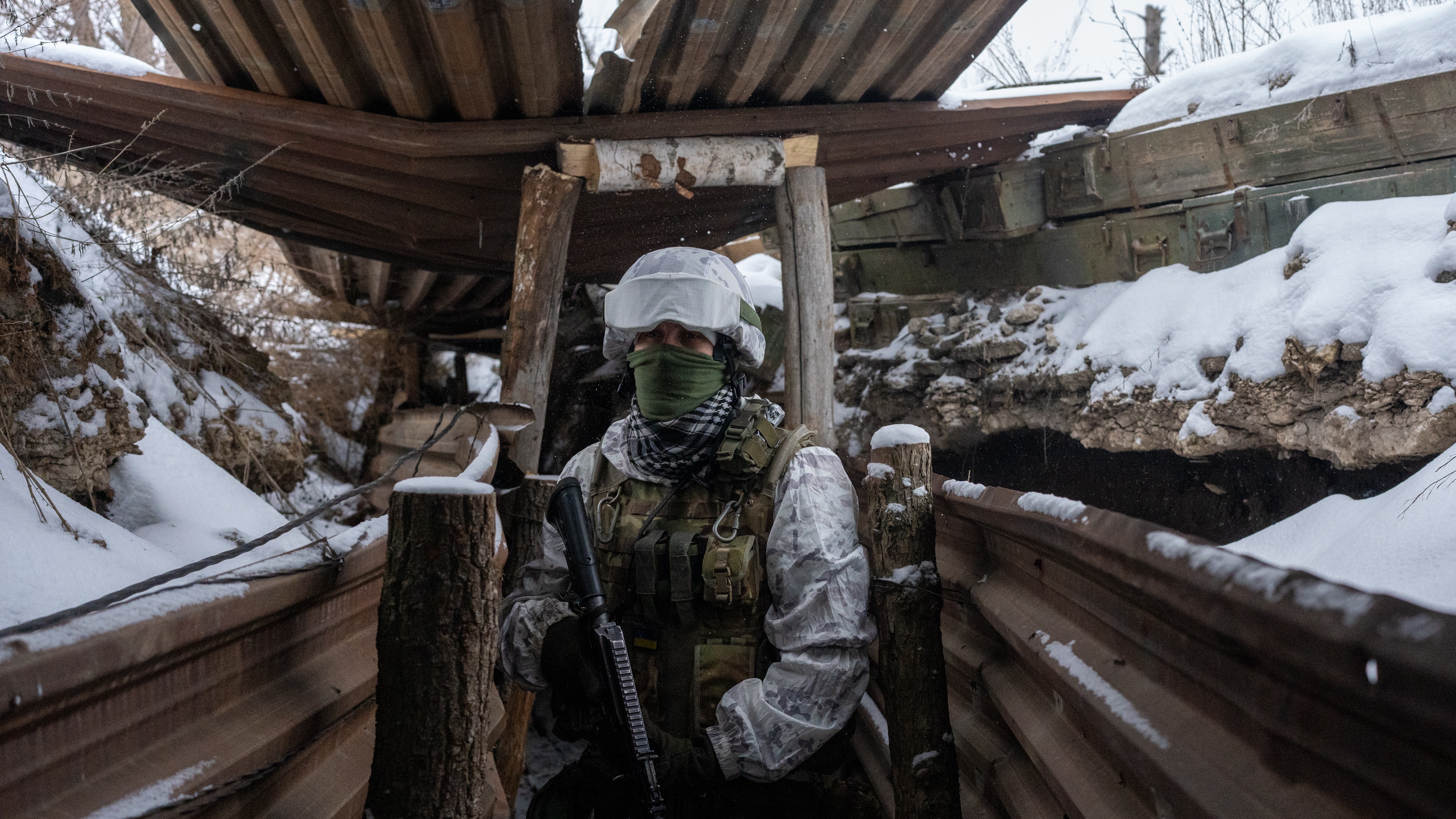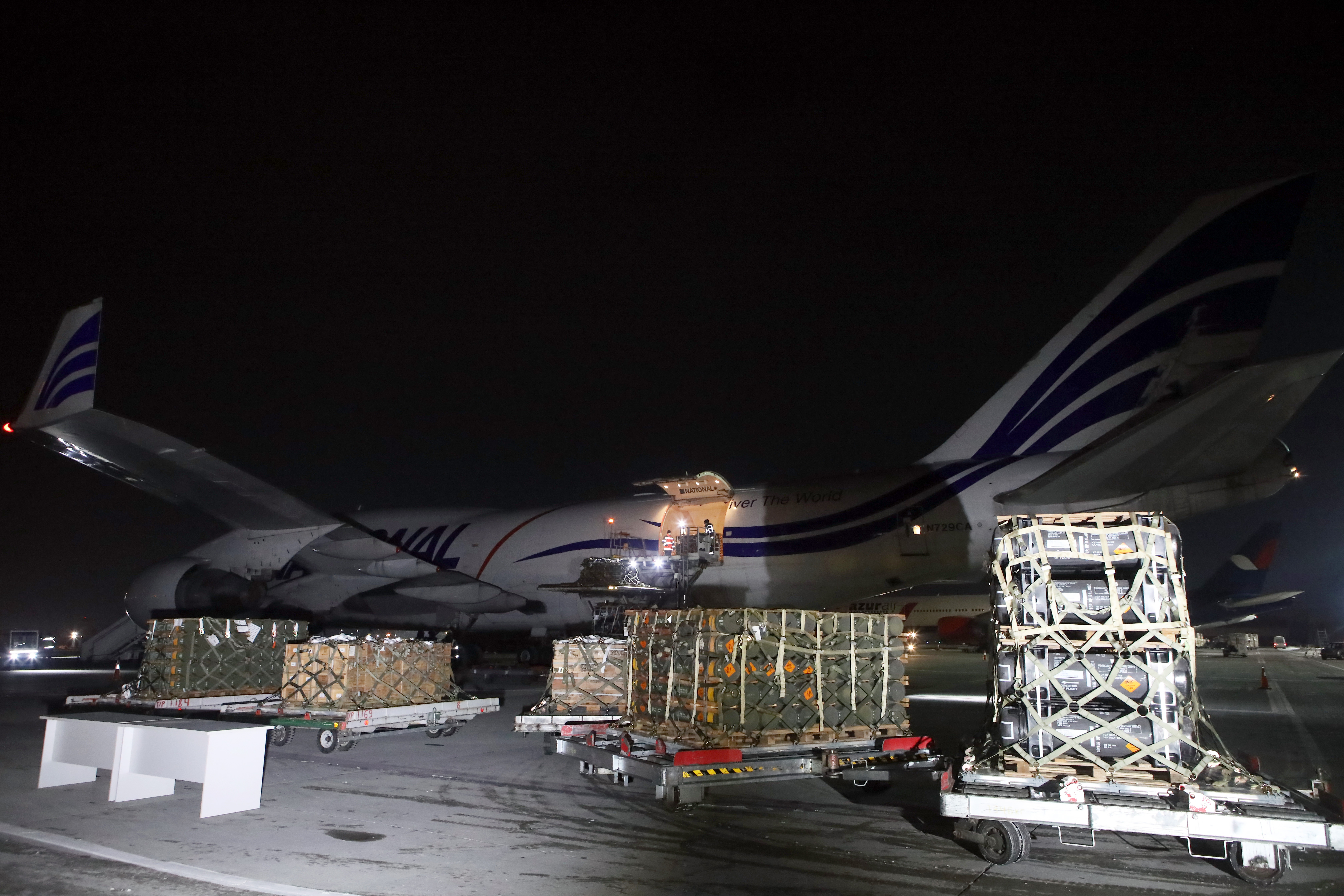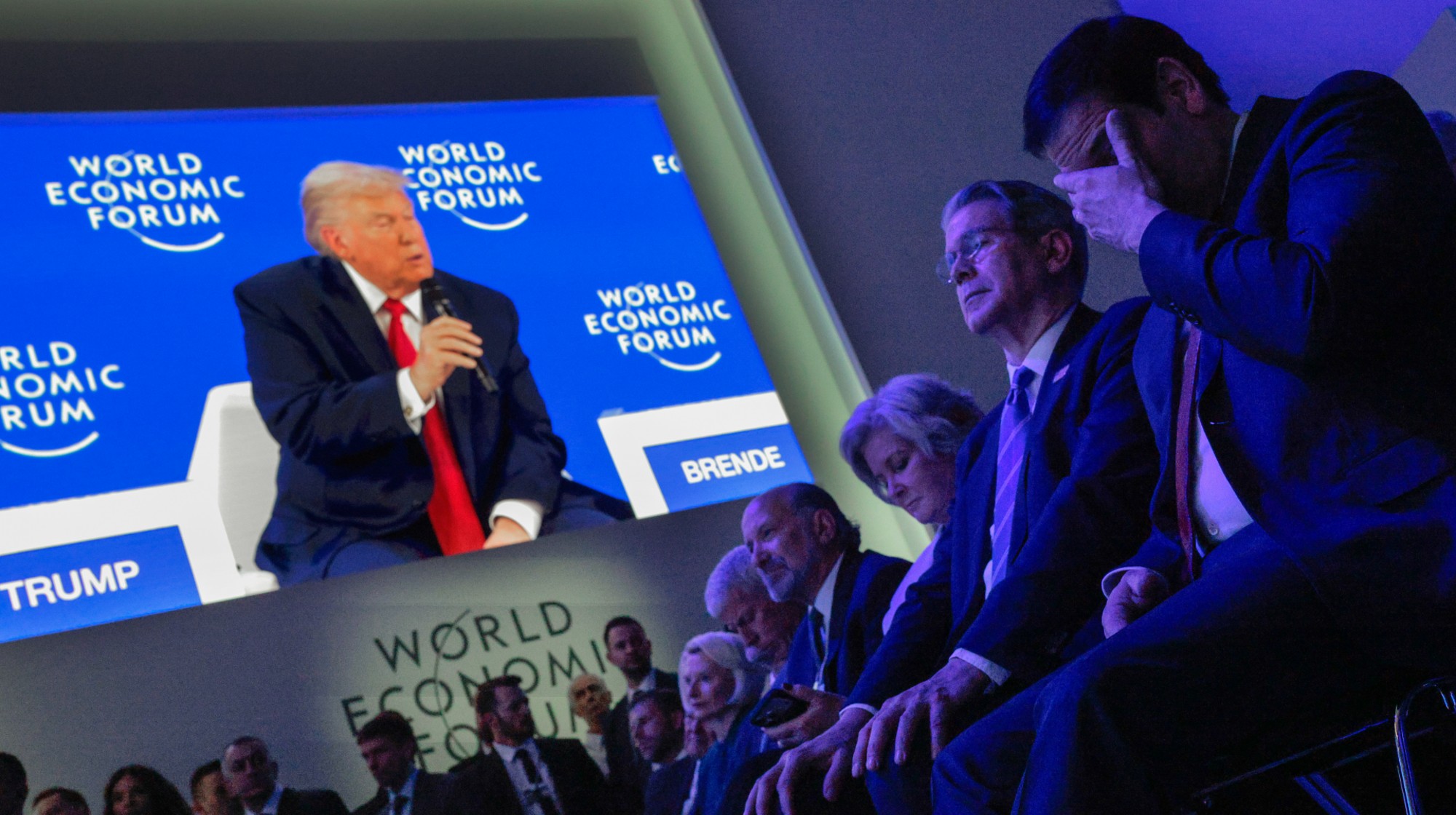Ukraine’s key lines of defence against Russian invasion
Kiev is outgunned by powerful neighbour but does not stand alone in fight

A free daily email with the biggest news stories of the day – and the best features from TheWeek.com
You are now subscribed
Your newsletter sign-up was successful
Ukraine’s leader has insisted that his country’s eastern flank is not at imminent risk of attack despite Russia beginning combat readiness inspections across the border.
President Volodymyr Zelenskiy said last night that the situation was “under control” and that Ukranians have “no reason to panic”. But Kiev “acknowledged the threat from Russia is real, and is due to accept a shipment of US military equipment to bolster its defences”, Sky News reported.
The US joins the UK and a host of Nato allies in helping Ukraine to prepare and bolster various lines of defence against a Russian invasion.
The Week
Escape your echo chamber. Get the facts behind the news, plus analysis from multiple perspectives.

Sign up for The Week's Free Newsletters
From our morning news briefing to a weekly Good News Newsletter, get the best of The Week delivered directly to your inbox.
From our morning news briefing to a weekly Good News Newsletter, get the best of The Week delivered directly to your inbox.
Kiev’s arsenal
Ukraine’s Defence Minister Oleksii Reznikov said on Monday that Russia has not yet ordered troops into battle groups, “which would have indicated that tomorrow they would launch an offensive”.
“There are risky scenarios. They’re possible and probable in the future,” he told Ukraine’s ICTV channel. “But as of today… such a threat doesn’t exist.”
However, British intelligence has suggested that Moscow may be preparing for a “lightning war”. Boris Johnson told ITV News on Monday that enough troops to form “60 Russian battle groups” were massed around the Ukraine border.
The warning has fuelled fear in Ukraine. The Times’ war correspondent Anthony Loyd reported that in recent weeks, the voluntary Territorial Defence Forces “has accelerated recruitment, aiming to train thousands of new volunteers”.
A free daily email with the biggest news stories of the day – and the best features from TheWeek.com
At least 5,000 personnel “are earmarked to support regular troops in the capital”, he wrote, and “the army is “distributing weapons to reservist units”.
According to Al Jazeera, Ukraine’s military currents consists of around 209,000 active personnel and around 900,000 reservists, compared with 900,000 and two million in Russia.
Kiev spends around $5.9bn (£4.3bn) a year on its army, a figure dwarfed by Moscow’s $61.7bn (£45.7bn) annual spend.
Ukraine also has approximately 2,040 artillery, 12,303 armoured vehicles, 2,596 tanks, 34 attack helicopters and 98 fighter aircraft, according to the broadcaster. But again, the country is comfortably outgunned by Russia.
Ukraine has the trump card of its informal alliance with a string of Western nations, however, although these links have also increased Russia’s bullishness.
The UK is so far “leading European efforts to deter Russian invasion”, supplying Kiev with “some 2,000 short-range anti-tank missiles”, The Wall Street Journal reported. As the arms deliveries continued, “God Save the Queen” began trending on Ukranian Twitter.
Joe Biden has also overseen the delivery of “some 300 Javelin missiles, shoulder-launched multipurpose assault weapons and bunker-busters”, said The Washington Post. In addition, the US has up to 8,500 troops on high alert for a Russian incursion.
The UK and US efforts have been matched by Nato mobilisation to bolster a defensive presence in eastern Europe.
“Denmark is sending a frigate and F-16 warplanes to Lithuania,” Sky News reported. “Spain is sending four fighter jets to Bulgaria and three ships to the Black Sea” and France “stands ready to send troops to Romania”.
Reformed force
Should Russian troops cross the border, they will be met by a very different force to the rag-tag organisation that was quickly repelled from Crimea in the early months of 2014.
According to the Atlantic Council, “Ukraine’s defence forces can cause significant damage” to Russia’s military and “in collaboration with reservists, civil society and volunteers, could make any attempted invasion a miserable experience for Russia”.
The “onset of war in 2014 exposed Ukraine as completely unprepared”, with a military that “was not manned, equipped or trained to meet Russian aggression” and leaders “neither psychologically nor legally prepared for hybrid war”, said the Washington D.C.-based think tank. .

But Ukraine’s defence management system has now “incorporated new approaches”, and military equipment and armaments have been “significantly renewed”.
Kiev has also built “top-secret tank bases” that Sky News’ chief correspondent Stuart Ramsay described as “Ukraine’s best hope of defence against Russian invasion”.
A tank battalion “on stand-by to fight” is reportedly stationed at a site hidden within thick woods in the eastern region of Donetsk, which along with the Luhansk region is collectively known as the Donbass.
The battalion’s tanks “are widely regarded as better than the ones used by the Russians”, wrote Ramsay. And “the Ukrainian military has been taking delivery of as many as they can get since the separatist uprising in Donetsk and the Russian annexation of Crimea in 2014”.
Ukraine’s arsenal of anti-tank missiles (ATGMs) is also seen as key to the country’s efforts to “hamper” Russian invasion, said The Economist. This “large and growing armoury” of ATGMs will “be most effective in urban or woodland areas, where defenders could hide among buildings or trees and get close without being detected”.
But Russian commanders, “mindful of their bitter urban battles in Grozny, the capital of Chechnya, in the 1990s, will want to sap Ukraine’s anti-tank defences long before they get in such close proximity”, the paper added. Given such counter tactics, while ATGMs will “make it harder for Russia’s army to enter cities”, they are unlikely to “halt it” entirely.
Can Ukraine repel Russia?
In going up against Moscow in a full-blow war, Ukraine appears to be the “David” to the Russian bear’s “Goliath”, said France 24. But with Kiev further “boosting its arsenal”, the potential outcome of such a conflict hangs in the balance.
When Russian troops without insignia crossed into Crimea back in 2014, “the Ukrainian army was in a pretty disastrous state”, Julia Friedrich, a research fellow at the Berlin-based Global Public Policy Institute, told the broadcaster.
The annexation was “a rude awakening for Kiev, which then embarked on major military reforms”, said Nicolo Fasola, a specialist in security issues in the former Soviet territories at the University of Birmingham.
All the same, Ukraine currently “finds itself in a mobilisation trap”, warned Michael Kofman, director of Russia studies at the CNA research organisation.
The government in Kiev may “be reluctant to conduct large force shifts”, because “if Moscow is spoiling for a fight”, a mobilisation order “could be used as a pretext by the Russian leadership” for launching a strike, Kofman suggested.
But on the other hand, the Western push to arm Ukraine “in anticipation of a Russian attack” is “hardly a policy success for Moscow” either.
According to analysts Samuel Charap and Scott Boston of the RAND Corporation, a global policy think tank, the bolstered Ukrainian army may serve as “little deterrent” to any attack being planned by the Kremlin.
If Moscow “is willing to launch a major war, invading the second-largest country in Europe with a population of over 40 million, all while absorbing tremendous economic punishment from the West”, they wrote, “it is unlikely to be deterred” by Ukraine’s military.
Kiev “does not have anywhere near enough forces to credibly defend against all the potential avenues of attack”. And “once deterrence fails and a war begins”, Ukraine’s military “will find themselves in desperate circumstances almost immediately”, Charap and Boston argued.
But Kiev “is no longer alone against Russia”, France 24 pointed out. The mobilisation of Nato forces is proof of the alliance’s unwillingness to sit of the sidelines in a potential repeat of the annexation of Crimea.
Should Russia decide to launch an invasion, “it will be very difficult for Ukraine and its allies to maintain a balance of power” in the region, the Global Public Policy Institute’s Friedrich told the broadcaster.
But deliveries of arms from Ukraine’s Western allies hold both a “strategic and material value”, according to Dumitru Minzarari, an eastern Europe specialist at the German Institute for International Affairs.
The Ukrainian army “can inflict additional damage on invading Russian forces with this equipment, which can have a deterrent effect”, he said. And the deliveries also hint at the “significant possibility that the country providing this military support will decide to become even more involved if an armed conflict breaks out”.
-
 6 fantastic homes with fun rooms for kids
6 fantastic homes with fun rooms for kidsFeature Featuring an organic modern house in Austin and historic Chicago abode
-
 Democrats seek calm and counterprogramming ahead of SOTU
Democrats seek calm and counterprogramming ahead of SOTUIN THE SPOTLIGHT How does the party out of power plan to mark the president’s first State of the Union speech of his second term? It’s still figuring that out.
-
 Climate change is creating more dangerous avalanches
Climate change is creating more dangerous avalanchesThe Explainer Several major ones have recently occurred
-
 Putin’s shadow war
Putin’s shadow warFeature The Kremlin is waging a campaign of sabotage and subversion against Ukraine’s allies in the West
-
 The fall of the generals: China’s military purge
The fall of the generals: China’s military purgeIn the Spotlight Xi Jinping’s extraordinary removal of senior general proves that no-one is safe from anti-corruption drive that has investigated millions
-
 Epstein files topple law CEO, roil UK government
Epstein files topple law CEO, roil UK governmentSpeed Read Peter Mandelson, Britain’s former ambassador to the US, is caught up in the scandal
-
 Iran and US prepare to meet after skirmishes
Iran and US prepare to meet after skirmishesSpeed Read The incident comes amid heightened tensions in the Middle East
-
 Israel retrieves final hostage’s body from Gaza
Israel retrieves final hostage’s body from GazaSpeed Read The 24-year-old police officer was killed during the initial Hamas attack
-
 China’s Xi targets top general in growing purge
China’s Xi targets top general in growing purgeSpeed Read Zhang Youxia is being investigated over ‘grave violations’ of the law
-
 Panama and Canada are negotiating over a crucial copper mine
Panama and Canada are negotiating over a crucial copper mineIn the Spotlight Panama is set to make a final decision on the mine this summer
-
 Trump backs off Greenland threats, declares ‘deal’
Trump backs off Greenland threats, declares ‘deal’Speed Read Trump and NATO have ‘formed the framework for a future deal,’ the president claimed